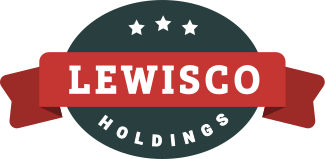As more Americans strive to survive a new struggling economy, liquidated food brokers supplying salvage grocers and food banks may be one way to bridge the gap. Lewisco Holdings has relationships with thousands of primary market distributors and retailers and always has an interesting inventory of quality products for bottom dollar prices.
 Salvaged and surplus foods can be a lifesaver for struggling families. Lewisco Holdings purchases these goods and transfers them into the secondary market where salvage grocers exist. Our super low prices allow businesses to maintain a profit margin while providing savings to their customers.
Salvaged and surplus foods can be a lifesaver for struggling families. Lewisco Holdings purchases these goods and transfers them into the secondary market where salvage grocers exist. Our super low prices allow businesses to maintain a profit margin while providing savings to their customers.
The goods found at salvage grocers are there for a variety of reasons. Some products may have slight damage or be close to expiration while others are simply older versions of products with updated ingredients/packaging or leftovers from the previous season or holiday.
As a new salvage shopper, check out your options. Make sure that the savings are worth the gas and that the store’s cleanliness is up to par. Any signs of bug or rodent activity should be a clear sign for you to leave, but don’t expect a pristine supermarket experience either.
Knowing when to stock up is key to shopping at a salvage grocery. Pull the trigger on buying multiples of products when they’re sure to be useful and significantly cheaper than retail. Since you never know what you might find at a salvage grocer, it’s best to know prices and look out for great deals.
It’s also key to consider expiration dates. They’re not firm deadlines but estimations of peak quality. Canned goods with slight dents, damaged products with protective interior bags, and frozen foods are often good past the date on the package.
Knowing what to avoid is also helpful. Deeply dented cans are potentially dangerous, and food that is in direct contact with a damaged cardboard box should also be passed over. Clear packaging is helpful since you can see the food and check for freezer-burn, mold, or other signs food isn’t good.
When you follow the general guidelines of salvage shopping, you can be confident in a safe shopping experience. Visually evaluating the products is usually an effective test for the safety of merchandise.
Key rules to remember when salvage shopping is to steer clear of baby food and medications. Baby foods are the only items mandated to have expiration dates, and you don’t want to risk the health of an infant. Additionally, medications degrade and change chemically over time, so they shouldn’t be trusted once expired.
Here at Lewisco Holdings, we employ a plethora of product categories to stock salvage grocery shelves. Product categories we buy and resell include shelf-stable dry food; canned foods; frozen entrees, apps, and desserts; cold food; alcohol-free beverages; vitamin-infused, flavored, and spring bottled water; sports drinks; coffee, tea, and energy drinks; kids’ drinks; juice and juice flavored refreshments; carbonated drinks; staple ingredients; bulk spices and candy; canned, kibble, and biscuit pet food; paper goods like party supplies, napkins, and paper towels; HBA items; and cleaning products – just to name a few.
Salvage grocery stores, community food banks and pantries, and schools are likely to be the hunger safety nets during trying economic times. Liquidated food brokers like Lewisco Holdings provide these types of entities with inventory. Call us at (917) 210-9395 to maximize the return on your unsaleable goods by selling to us or to make the most of a limited budget as a buyer.

